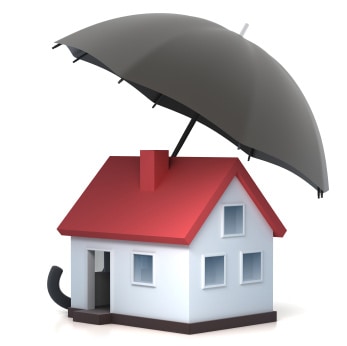Protect your rental properties with landlord insurance
The purchase of a rental property is a major investment that can realize great rewards but also one which comes with risks. One of these risks is the liability the landlord assumes for losses that occur on the rental property, such as bodily injury or property damage arising from the use of their property by tenants, visitors and subcontractors.
It is extremely important for any residential investor to protect themself with high quality landlord insurance from a reputable company. One can never overestimate the benefits and importance of excellent insurance coverage.
What is landlord insurance?

A landlord insurance policy is meant to protect you as an investment property owner while safeguarding your rental properties, such as the apartments, condominiums and single- or multi-family homes that you rent to others.
Although it is not mandatory that property owners purchase landlord insurance, most lenders will require it if you are financing the property or hold a mortgage on it.
Landlord policies are designed for “non-owner-occupied” property. If you live on the property and rent out a room or another floor to a tenant, you’re typically not eligible for a landlord policy. However, you may be able to add coverage to your homeowners policy for the part of your property you are renting out.
Your policy’s rental compensation coverage will typically help you maintain income if your investment property becomes temporarily uninhabitable. Most insurers will protect the landlord against loss of rent in the event of a covered loss. If a tenant or their guest gets hurt on the property, landlord insurance can cover your legal fees and any covered damages if you are found liable for their injuries.
If you do not already have landlord insurance on your properties, purchasing coverage should be at the top of your to-do list. Landlord insurance provides financial protection if your rental property is damaged, becomes unlivable after a devastating event, such as a fire, earthquake or hurricane, or medical expenses if someone is hurt on the premises.
Any damage to the home, the belongings inside that you own or lawsuits against you will not be covered unless you get landlord insurance. Not having this coverage could mean economic disaster and the loss of your investment.
How does landlord insurance differ from homeowners insurance?
The property protection in a landlord insurance policy typically helps insure physical property related to the home you’re renting out. This may include the dwelling itself, appliances you provide and any equipment you keep on site to help maintain it. On the other hand, homeowners insurance is specifically designed to protect your primary residence and your possessions in the event of certain disasters; it can also protect you and your family from liability claims. Standard homeowner insurance only provides limited coverage for rental properties, which is why a separate landlord policy is necessary.
When renting out your property, understanding the difference between landlord insurance and homeowners insurance can ensure that you have the coverage you need to avoid unexpected out-of-pocket expenses.
Is there more than one type of landlord insurance?
Insurance for landlords typically includes two different types of coverage: property and liability protection. Both coverages are intended to help protect the landlord from financial losses.
- Property coverage protects the actual physical dwelling and other structures, such as a detached garage or fence, when they are damaged by a covered loss. Any items that are kept onsite to maintain the rental property are also insured under your landlord policy if they are destroyed by a disastrous incident. Of course, any claims for this type of coverage are subject to your policy’s deductibles and limits.
- Liability Insurance coverage pays for another person’s medical bills or your own legal expenses if someone is injured on your rental property and you are found responsible. Like homeowners insurance, landlord insurance will protect your property against fire damage, storm damage, lightning, wind, hail, etc. It will also cover you when dealing with tenants. You typically won’t pay a deductible for a liability claim.
What does a landlord policy NOT cover?
In most cases landlord insurance does not cover maintenance-related issues and equipment breakdowns, such as a washing machine or a furnace that are worn out due to natural wear and tear. Intentional damage like vandalism is also not covered. For example, the dwelling coverage in your policy may help pay to repair damage caused by a tenant moving furniture, but it probably will not cover clean-up costs if a dissatisfied tenant deliberately damages the home.
Landlord insurance generally does not cover your tenant’s personal possessions. For that protection, your tenants will need to purchase their own renters insurance policy. Some landlords require tenants to show proof of renters insurance before approving their rental contract. This helps renters pay to repair or replace their personal belongings if they are damaged by a covered peril, such as fire or theft.
 Building
Building









 Accessibility
Accessibility